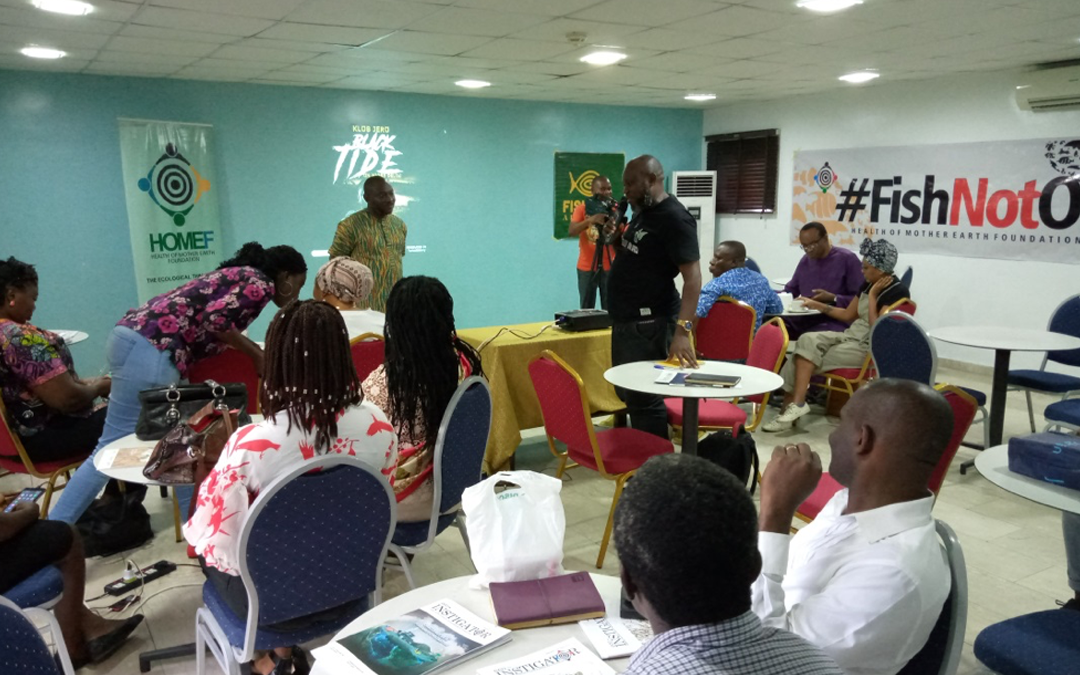The nexus that exists between journalism, music, art and the society is so intricate and vital that it hold the keys to solving the existential societal problems and those of environmental pollution.
Health Earth of Mother Earth Foundation (HOMEF) on 13 November 2019, organized a meeting with journalists and civil society organisations (CSOs) in Port Harcourt to garner support for environmental monitoring – with emphasis on media reporting and advocacy. This meeting was also an avenue to launch the musical video: Black Tide in Niger Delta which illustrates the confluence of arts, environmental protection and reporting.
“Black Tide” in Niger delta as written and sung by Klub-Jeru, was inspired by a song of a similar title produced by the South Sudanese Anataban artistes. It is a song communicating the dastard ecocide committed by oil exploration/exploitation companies and it also highlights the high level of devastation of rivers, land, and air in the Niger Delta, and hence sues for JUSTICE.

Speaking during this event, Nnimmo Bassey, Director of HOMEF pointed out that Journalism, just like art, builds the platforms for political action and the protection of the planet. He added that songs have proven to provide the basis of waking-up people, raising consciousness and mobilising for action.
It was emphasised that cultural tools are vital for fighting social and environmental ills. The need for Nigerians to write our own stories was also stressed. Bassey said: “for example, Nigeria is gradually losing her food to biotechnology companies who promote false narratives and false solutions like ‘extinction technology’ and genetic modification (GM) technologies – whose implications are not fully known.
Also speaking at the event, Celestine Akpobari, a human and environmental rights campaigner remarked that issues of the environment are very serious and yet are under-reported. In his words: Everything about man is tied to the environment. So to kill a man, pollute his environment! Oil in Ogoniland is enveloped in blood and leaving Ogoni oil in the soil has been a very difficult struggle but more than ever, we must continue to keep it in the ground. The journalists were encouraged to see themselves as critical stakeholders and to work to engender justice for the environment through widespread and accurate reportage.
The journalists lauded the initiative and called for more dialogues and training on environmental issues- this they say would help to develop the indices for investigative journalism on environmental matters. They also discussed challenges to effective reporting which include lack of monitoring and reporting gadgets, threats by security agencies and restricted access to locations of environmental concern.
At the end of the meeting, it was resolved that more work needs to be done to promote environmental justice journalism and to cause a mind shift about the mercantilistic perceptions of the environment. This will involve continuous training of reporters and youths to act as watchdogs to the environment.





